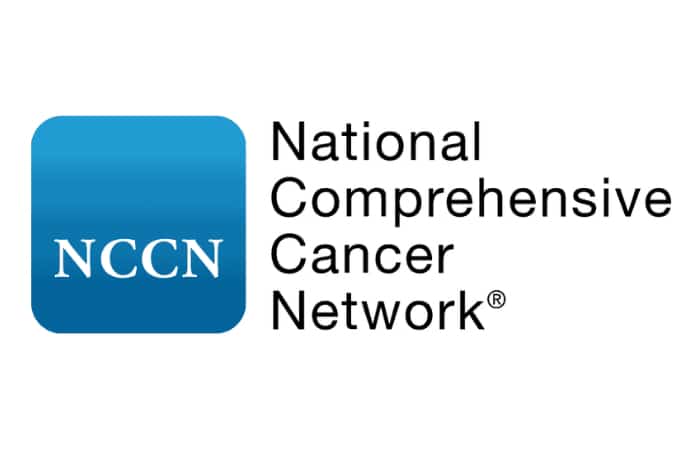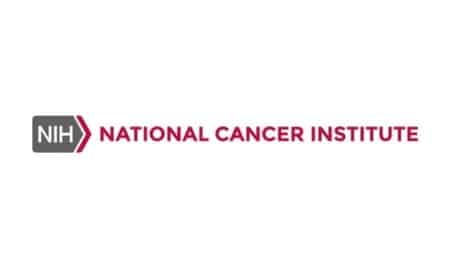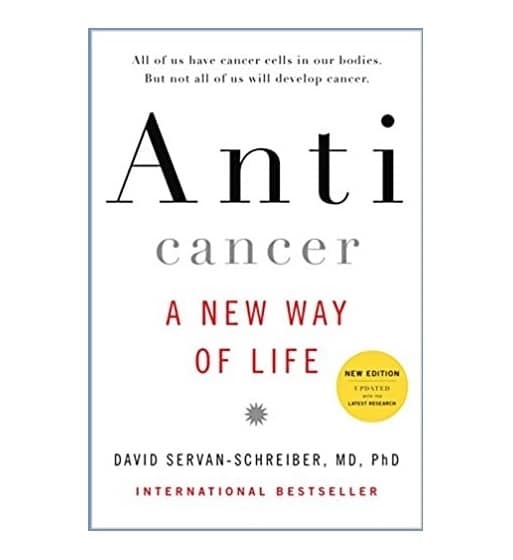I have cancer. I was diagnosed for the first time fifteen years ago. I received conventional treatment and the cancer went into remission, but I relapsed after that. Then I decided to learn everything I could to help my body defend itself against the illness.
David Servan-Schreiber, MD, PhD, author of Anticancer: A New Way of Life
A letter from Laura
The cancer you thought you were done with has returned and you’ve found your way to this CancerChoices page.
A letter from Laura
Go into the silence with me for a moment. Take in a deep breath and let it find that place of knowing . . . that reassuring voice that says, “We’ve been here before; we’ve made it through before; we are resilient; we’ll have what we need to get through this.” As you breathe out, tell the scary thoughts they can go out with your breath, while peace, calm, and clarity rush in with your next in-breath. Let your worries float out on your next out-breath. For a few more breaths, continue to breathe in peace, calm and clarity and breathe out your worries. From this place of peace, calm, and clarity that you’ve just created, let’s explore what’s right for you now.
Even though the cancer has recurred, you still have options, usually lots of them. It’s possible that the treatment goals this time are similar to those you had when you were originally diagnosed and treated. Some recurrent cancers may be curable. Others may act more like chronic diseases that perhaps won’t be cured, but can be effectively controlled, allowing you to live well for many years. Your cancer may have recurred in an advanced stage.
Yet even then, choices are available in conventional therapiesthe cancer care offered by conventionally trained physicians and most hospitals; examples are chemotherapy, surgery, and radiotherapy, including clinical trials, as well as in further therapies for those who want to leave no stone unturned. Those who want to focus on quality of life, for however long that may be, have good options, both within and outside conventional care. Many of these options fall in the realm of palliative and hospice care.
You’ve been there before, sitting across from your doctor, learning that you have a cancer that is going to demand your time and attention for the foreseeable future. What’s different now is you’ve got knowledge, skills, resources, and tools you didn’t have the first time around—use them.
The other thing you may have going for you is that more and better conventional treatments may be available compared to the first time you were treated for cancer. Plus, those physicians who practice integrative oncology (blending conventional with complementaryin cancer care, complementary care involves the use of therapies intended to enhance or add to standard conventional treatments; examples include supplements, mind-body approaches such as yoga or psychosocialtherapy, and acupuncture therapies and lifestyle practices) are expanding their toolboxes all the time, testing for and correcting terrainthe internal conditions of your body, including nutritional status, fitness, blood sugar balance, hormone balance, inflammation and more imbalances, determining the sensitivity of tumors to natural products and off-label drugs, blending in complementary therapies to enhance conventional treatment and/or control side effects.
There’s reason to be hopeful, even if the nature of that hope has changed.
So, if you have a cancer recurrence and want to explore how you weave together conventional care, complementary care, and self carelifestyle actions and behaviors that may impact cancer outcomes; examples include eating health-promoting foods, limiting alcohol, increasing physical activity, and managing stress, see the CancerChoices pages we provide below for what we think will be most useful now.
Thank you for choosing CancerChoices to be a guide by your side.
Take care,
Laura
Laura Pole, MSN, RN, OCNS
Laura Pole is senior clinical consultant for CancerChoices. Laura is an oncology clinical nurse specialist who has been providing integrative oncology clinical care, navigation, consultation, and education services for over 40 years. She is the co-creator and co-coordinator of the Integrative Oncology Navigation Training at Smith Center for Healing and the Arts in Washington, DC. Laura also manages the “Media Watch Cancer News That You Can Use” listserv for Smith Center/Commonweal. In her role as a palliative care educator and consultant, Laura has served as statewide Respecting Choices Faculty for the Virginia POST (Physician Orders for Scope of Treatment) Collaborative as well as provided statewide professional education on palliative and end-of-life care for the Virginia Association for Hospices and Palliative Care.
For CancerChoices, Laura curates content and research, networks with clinical and organizational partners, brings awareness and education of integrative oncology at professional and patient conferences and programs, and translates research into information relevant to the patient experience as well as clinical practice.
Laura sees her work with CancerChoices as a perfect alignment of all her passions, knowledge and skills in integrative oncology care. She is honored to serve you.
Laura Pole, MSN, RN, OCNS
Laura Pole is senior clinical consultant for CancerChoices. Laura is an oncology clinical nurse specialist who has been providing integrative oncology clinical care, navigation, consultation, and education services for over 40 years. She is the co-creator and co-coordinator of the Integrative Oncology Navigation Training at Smith Center for Healing and the Arts in Washington, DC. Laura also manages the “Media Watch Cancer News That You Can Use” listserv for Smith Center/Commonweal. In her role as a palliative care educator and consultant, Laura has served as statewide Respecting Choices Faculty for the Virginia POST (Physician Orders for Scope of Treatment) Collaborative as well as provided statewide professional education on palliative and end-of-life care for the Virginia Association for Hospices and Palliative Care.
For CancerChoices, Laura curates content and research, networks with clinical and organizational partners, brings awareness and education of integrative oncology at professional and patient conferences and programs, and translates research into information relevant to the patient experience as well as clinical practice.
Laura sees her work with CancerChoices as a perfect alignment of all her passions, knowledge and skills in integrative oncology care. She is honored to serve you.
Navigating recurrence
Take care of difficult emotions and physical distress first
Learning that the cancer has recurred can trigger feelings similar to what you had the first time you learned you had cancer. Different feelings may also come up for you. Shock. Fear. Anger. Sadness. Guilt. Feeling this way hurts, but going into and through the difficult emotions and improving your physical comfort is an important first step in moving forward.
So before we even look ahead, notice what you feel. Name the feelings and ask them what they are here to tell you. Listen compassionately. Make note of what the feelings have to say to you.
Once you have an idea of what you need, take care of the physical and emotional feelings of distress first. Remind yourself, you have been through tough times before and you now have so much more knowledge and skill to get through this tough time.
Some sections of CancerChoices will help you take care of difficult emotions and physical distress common during recurrence.
Get clear on what matters now
Learn about your cancer and recommended treatment
Sometimes cancer recurs in a different place than where it started. It may have changed its behavior and taken on different characteristics since it was first diagnosed. Your oncology doctors will recommend treatment based on what they learn about the “personality” of the current cancer. The treatment may be very similar to what you had before, or it may change to account for changes in the cancer. New treatments may have come out since you were originally treated for cancer. You may find it helpful to review information about your type of cancer and the treatment recommended.

NCCN Guidelines for Patients ›
Treatment by Cancer Type ›
For health professionals

Understanding Your Diagnosis ›
Cancer A-Z ›
Find information on your type of cancer
Learn about your choices
When cancer recurs, many conventionalthe cancer care offered by conventionally trained physicians and most hospitals; examples are chemotherapy, surgery, and radiotherapy treatment options may be available, possibly even curative. If you want to blend complementaryin cancer care, complementary care involves the use of therapies intended to enhance or add to standard conventional treatments; examples include supplements, mind-body approaches such as yoga or psychosocialtherapy, and acupuncture therapies and self-carein cancer care, complementary care involves the use of therapies intended to enhance or add to standard conventional treatments; examples include supplements, mind-body approaches such as yoga or psychosocialtherapy, and acupuncture healing practices into your care, then even more options can be considered. We see your cancer choices falling into several “drawers.” You can open whichever drawer of choices seem relevant right now and learn more:
Make and integrate your choices
7 Lifestyle Practices
Beginning or reinforcing self-care healing practices such as Sleeping Well, Managing Stress, or Sharing Love and Support might be important for you now. They may not only help with the difficult emotions and physical distress you might be experiencing, but may also begin to make your body less supportive of cancer and perhaps make the recurrent cancer more vulnerable to treatments.
Many of these therapies help ease feelings of overwhelm and anxiety or help manage symptoms such as pain. Some might even enhance your conventional treatment. You may already have a team of complementary therapists from your prior treatment. This might be a good time to get in touch with them and see if they have something to offer you now.
Planning in advance: communicating your wishes
Having a recurrence prompts some people to think about or revise their directives for their medical care in case a time comes when they can’t speak for themselves. This is a good time to talk with your doctor about your goals of care both for the foreseeable future and when you might not be able to speak for yourself. These discussions can then lead to the completion of advance directive forms.
The forms vary from one state or country to another. So check with your local physician or hospital for any forms you need to complete to be sure your wishes will be followed. Advance directive forms for US states and the District of Columbia are in resources listed below. Communicating your wishes to the person you appoint to speak for you is a vital conversation to have before a crisis arises.
Helpful links for advance planning
Get more help
Volunteer guides can lead you through this website or the bigger unfamiliar territory of cancer.
We’re with you
No matter what you’re facing in your journey with cancer, you are not alone. We’re here to help and connect you with resources that will help you and those you love.
A cancer recurrence story: Kay
CancerChoices Senior Clinical Consultant Laura Pole, RN, MSN, OCNS, recalls her experience helping Kay through her recurrence.
On our first meeting, it was apparent that Kay’s fear about treatment side effects was pushing her anxiety through the roof. Kay felt that her treatment team was not taking her concerns about side effects seriously enough and that some of them acted like she was a “thorn in their side.” She felt alone and not heard or understood.
Kay is a retired nurse—she did her research and had good ideas on what might be making her sensitive to the side effects and what might help. Since she had been on the fence about even getting chemotherapy, she seemed on the verge of stopping treatment altogether because of the side effects. On the other hand, when her doctor suggested lowering the dose, Kay worried that this would lower treatment effectiveness.
Read Kay’s story.






